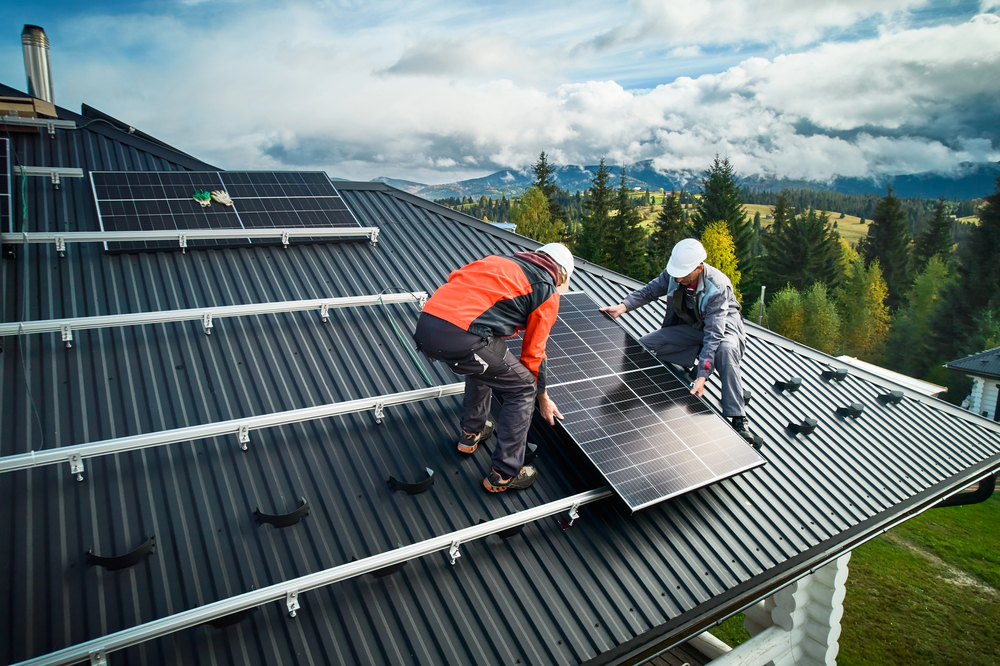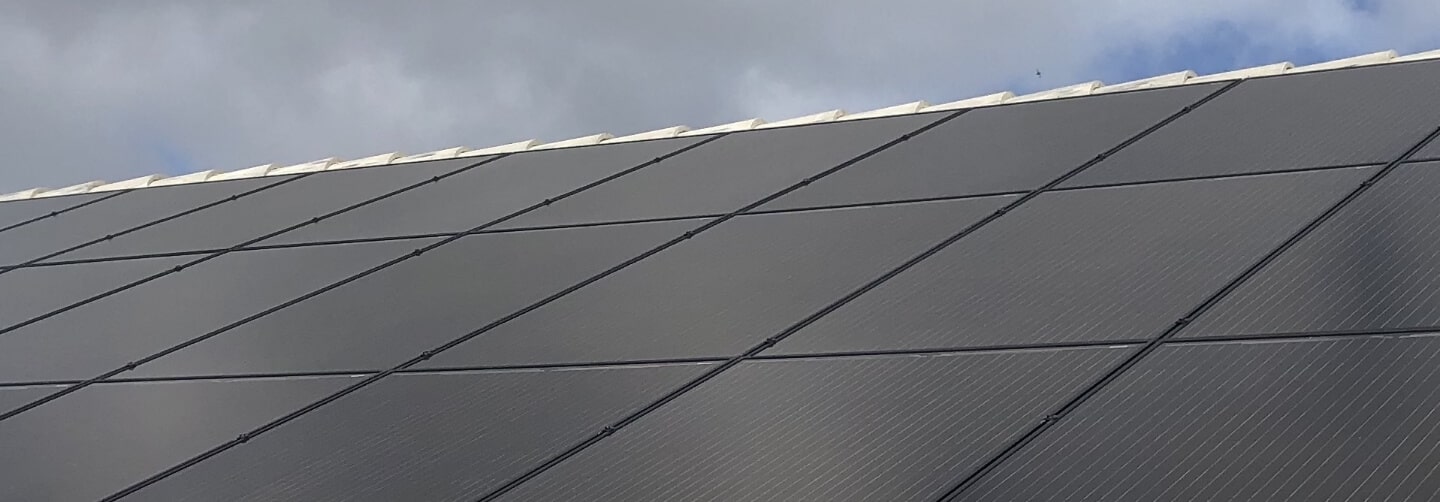How To Choose The Best Solar Panels For Southwest Florida Homes And Businesses

Choosing the right solar panels in Florida involves more than selecting a product from a catalog. The region’s climate, building structures, and energy demands all influence performance. Understanding how to choose solar panels helps you make an informed investment that delivers strong returns over time.
Southwest Florida’s mix of high sunlight exposure and seasonal storms means you need panels suited to both efficiency and durability. By considering the right factors, you can match your system to your needs and protect your long-term energy savings.
Understanding Your Energy Needs
The first step in knowing how to choose solar panels is evaluating how much electricity you use and when you use it. A home or business with heavy daytime power consumption can benefit from a system that maximizes output during peak sunlight hours. Reviewing your utility bills for at least the past year reveals seasonal patterns and overall usage.
Consider changes you expect in the near future. For example, installing energy-hungry appliances, charging an electric vehicle, or expanding your business operations could require more capacity. Choosing the right panel type and system size starts with this baseline assessment.
Why Climate Matters in Florida
Solar panels in Florida face conditions that can both help and challenge their performance. On the positive side, Florida enjoys some of the highest annual sunlight hours in the country. This gives solar systems the opportunity to generate substantial energy.
However, the same climate that supports high production can also test panel resilience. High humidity, salt air in coastal areas, and intense summer heat can affect certain materials. Seasonal storms and hurricane risks add another layer of consideration, making build quality and wind-resistance ratings important.
Look for panels tested for high-temperature performance and certified for wind loads common in the state. This attention to climate conditions will help maintain consistent output year after year.
Efficiency and Output Ratings
Efficiency refers to how well a solar panel converts sunlight into usable electricity. Higher efficiency panels produce more power from the same surface area, which can be valuable if your roof has limited space.
In Southwest Florida, where sunlight is abundant, efficiency still matters because it influences how much energy you can generate during overcast periods. Output ratings, measured in watts, indicate the panel’s maximum power under ideal conditions. Matching these ratings with your energy goals and available installation space helps create a balanced system.
Panel Types: Monocrystalline, Polycrystalline, and Thin-Film
Different panel technologies suit different needs:
- Monocrystalline panels offer high efficiency and a sleek appearance. They perform well in smaller spaces but can cost more upfront.
- Polycrystalline panels are generally less expensive but slightly less efficient. They can be a good fit when space is not limited.
- Thin-film panels are lighter and flexible, which works well for certain applications. They often require more space and have lower efficiency compared to crystalline types.
For most homes and businesses in Southwest Florida, monocrystalline or polycrystalline panels are the main options due to their proven durability and output in the region’s conditions.
Durability and Warranty Considerations
When installing solar panels in Florida, durability should be at the top of your checklist. The system will face strong UV exposure, heavy rain, and high winds. A panel’s build quality directly affects how it performs over decades.
Warranties typically include a product warranty covering defects and a performance warranty guaranteeing a certain output level over time. A strong warranty can offer peace of mind, but it also reflects the manufacturer’s confidence in their product. Panels with longer warranties often come from companies with a track record of stability.
Cost Versus Long-Term Value
Upfront cost is often the first figure people see when researching solar panels. However, the true measure of value includes long-term savings and maintenance costs. A slightly higher initial investment in durable, high-efficiency panels may result in more savings over 25 years compared to a cheaper system with lower output.
You should also account for potential incentives, tax credits, and local net metering programs that allow you to receive credit for excess energy your system produces. Evaluating panels in terms of their lifetime cost per kilowatt-hour gives a clearer picture of their financial impact.
Installation and Mounting Options
The way your panels are mounted influences both performance and longevity. Roof-mounted systems are common for residential properties, while commercial installations may use ground mounts or canopy structures. In Southwest Florida, mounting hardware must handle high winds and be corrosion-resistant.
A professional installer familiar with local building codes can recommend the most suitable approach for your structure. Correct placement and tilt angle help capture the most sunlight throughout the year, boosting your system’s overall efficiency.
The Role of Inverters and Other System Components
Panels are only part of a solar system. Inverters convert the direct current (DC) electricity from the panels into alternating current (AC) used in your home or business. The type and quality of the inverter can influence system efficiency and monitoring capabilities.
String inverters, microinverters, and power optimizers each offer unique benefits. Microinverters, for instance, allow each panel to operate independently, which can help maintain output when one panel is shaded. Choosing the right combination of panels and inverter technology ensures the system meets your energy goals.
- Maintenance Expectations in Florida
Solar panels generally require minimal maintenance, but Florida’s climate may add a few considerations. Pollen, salt residue, and storm debris can accumulate on the surface, reducing output. Periodic cleaning and inspections help keep your system operating at peak efficiency.
Some homeowners and businesses schedule professional inspections annually to check for loose connections, corrosion, or damage from extreme weather. Addressing small issues early can prevent more expensive repairs later.
- Matching Panel Selection With Property Type
Homes and businesses in Southwest Florida have different priorities when it comes to solar power. A residential property may aim to offset household energy use and protect against rising electricity costs. A business might focus on reducing operational expenses and projecting an environmentally responsible image.
Panel choice should align with these goals. High-output panels can help commercial sites with large energy demands, while a homeowner with a shaded roof may prioritize panels with strong low-light performance. Tailoring the selection process to the property type ensures better outcomes.
- Efficiency And Performance In Florida’s Climate
Southwest Florida’s abundant sunshine is ideal for solar energy production. However, heat and humidity can influence solar panel efficiency. Not all panels handle high temperatures equally well. Look at the temperature coefficient of each option. This figure shows how much efficiency drops as temperatures rise above 77°F. Panels with a lower coefficient perform better in Florida’s hot summers.
For example, if two panels have the same peak efficiency in cooler weather, the one with a lower temperature coefficient will produce more energy during the year in this region. Investing in a panel suited for the local climate means more consistent performance over decades.
The impact of humidity should also be considered. High moisture levels can accelerate wear in poorly sealed panels. Look for panels with strong weather resistance and high-quality encapsulation materials to protect the internal components.
- Maintenance And Longevity
Solar panels require minimal maintenance compared to other energy systems. Still, longevity depends on the quality of the product and installation. Most panels last 25 years or more, but the output gradually decreases.
In Florida, salt in the air from coastal winds can contribute to corrosion over time. Panels with corrosion-resistant frames and robust glass are better suited for coastal homes and businesses.
Working with a local installer who understands regional challenges is important. A company experienced with solar services in Southwest Florida will know how to select mounting hardware, panel types, and protective measures that extend system life.
- Warranty And Support
A solar panel’s warranty offers a level of security for your investment. Warranties typically cover two areas: product defects and performance guarantees. A strong warranty is important for long-term returns.
In Florida’s active weather conditions, the installation process matters as much as the equipment. A good installer will also stand behind their work. This means offering service support if issues arise. Look for a company that provides clear warranty details and in-house service without heavy reliance on third-party subcontractors.
- Integration With Other Solar Solutions
Choosing the right solar panels can open the door to broader energy solutions. For example, homeowners may install solar pool heaters to extend the swim season without increasing utility bills. Businesses may combine panels with solar electric systems to reduce operating costs and improve sustainability goals.
The type of panel you select will influence compatibility with future system expansions. Discuss long-term plans with your installer so they can recommend a setup that is easy to scale or integrate with additional energy-saving systems.
Get The Right Solar Panels with Local Expertise
The process of choosing solar panels in Florida requires more than comparing prices or reading generic reviews. Factors like temperature resilience, humidity protection, salt corrosion resistance, warranty strength, and integration potential all affect long-term results.
At Solar Energy Solutions of America, we design and install solar systems built for Southwest Florida’s unique environment. We handle everything in-house, from planning to installation and ongoing support, to give you dependable performance for years to come.
